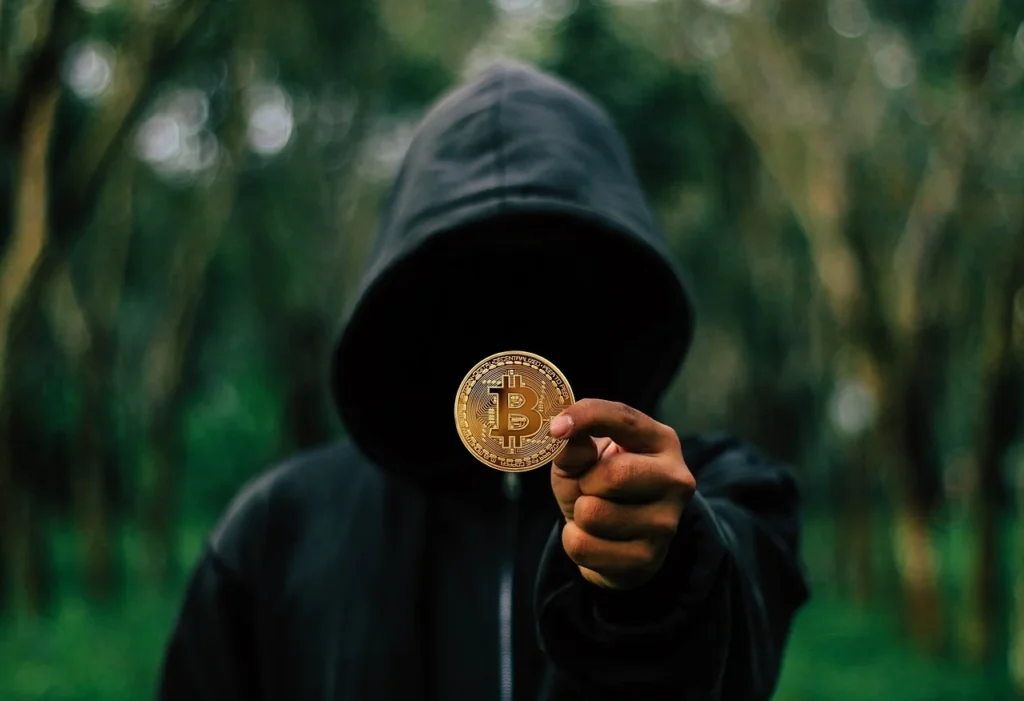Decentralized Autonomous Organizations (DAOs) and Legal Recognition
Introduction
Blockchain technology’s introduction in recent years has spurred a paradigm change in operational approaches and organizational structures. Among the most significant of these developments are Decentralized Autonomous Organizations (DAOs), companies run under a distributed structure based on smart contracts and blockchain technology. These companies deviate greatly from conventional company structures, in which players share rather than concentrate control and decision-making under a centralized power. A DAO’s basic idea is that it runs independently, following pre-defined rules buried inside smart contracts that run and enforce decisions automatically depending on member consensus. Blockchain technology’s openness and immutability guarantee that all governance procedures and transactions are seen and tamper-proof. DAOs have transforming power, although their path to widespread adoption is full with difficult legal barriers. DAOs’ position, responsibility, and operational legitimacy are seriously called into doubt when their junction with current legal systems occurs. Examining the present situation of legal systems, the difficulties encountered, and the possible routes ahead for including these creative entities into existing legal systems, this paper explores the complex interaction between DAOs and legal recognition.

Information about DAOs
Understanding DAO operating mechanics and the guiding ideas behind its construction can help one to appreciate their legal consequences. Fundamentally, a DAO is an organizational structure wherein smart contracts carried out on a blockchain codify governance and decision-making. Smart contracts—self-enforcing contracts with conditions written straight into the code—do away with middlemen and lower administrative expense. Because DAOs are distributed rather than centralized and decisions are decided collaboratively by token holders with governance tokens rather than depending on conventional hierarchical systems. These tokens provide members voting rights commensurate with their ownership, thereby enabling members to suggest and vote on different projects including strategic orientations, project finance, or protocol adjustments. The blockchain ledger guarantees that every action, choice, and financial transaction is documented honestly and cannot be changed retrospectively, therefore strengthening participant confidence and lowering the possible conflict risk. Aiming to democratize decision-making, reduce conflicts of interest, and promote more openness, this distributed governance approach But as conventional legal systems are essentially established around centralized bodies with clear lines of power and responsibility, this model also presents difficulties in terms of legal recognition and regulatory compliance.
Difficulties with legal recognition
The special qualities of DAOs provide various difficulties in terms of fitting with current legal systems. Conventions of centralized power and fully defined legal obligations distinguish traditional legal systems. These systems simplify the application of legal ideas and rules as they presume that companies have clear leadership hierarchies and physical presence. By contrast, DAOs run in a distributed way without a central authority, which makes their categorization and regulatory handling more difficult. Figuring DAO legal status is one of the main challenges. Do they fit into another category entirely or are they to be regarded as entities in their own right, like companies or partnerships? Lack of a physical presence and central administration begs issues about liability and legal responsibility of DAOs. For example, it would be difficult to decide who should be held responsible if a DAO broke contracts or engaged in criminal activity. Because DAOs are divided among their members and their decentralized character makes culpability difficult to identify legally for any possible breaches or losses. Furthermore complicating things is the cross-border character of many DAUs, which often operate across many countries with different legal systems and regulatory rules. This calls for a coordinated strategy to handle DAO legal recognition so that they follow relevant laws and guidelines and guarantee compliance.
DAOs’ Current Legal Situation
With diverse degrees of acceptance and control across various countries, DAOs’ legal standing is still developing. While in certain areas deliberate efforts have been done to include DAOs into current legal systems, in others these organizations remain mostly under control or cause of confusion. For instance, places like Wyoming in the United States have experienced notable changes in the legal regulation of DAOs. By passing laws allowing DAOs to register as a kind of limited liability business (LLC), Wyoming has shown a forward-looking stance. Under state law, this legal classification gives DAOs a formal identity and several safeguards like restricted responsibility for members and contract-entry capacity. Considered as a trailblazing attempt to acknowledge the special qualities of DAOs and provide some legal certainty and stability, the Wyoming laws reflect The scene is still patchy since other states and jurisdictions in the United States are currently deciding how to handle DAO legal status. Globally, the circumstances vary similarly. Blockchain technology and DAOs have been adopted by certain nations, such as Switzerland and Estonia, therefore fostering legislative settings that help their growth and implementation. Renowned for its “Crypto Valley,” Switzerland has developed a legal framework that supports blockchain-based initiatives like DAUs by offering clear rules and therefore encouraging a business environment. With regulatory rules supporting digital companies, Estonia’s e-residency program and digital-first attitude have also made it a center for blockchain innovation. On the other hand, several nations either oppose blockchain technology or are currently working on suitable legislative policies. For DAOs functioning internationally, the lack of consistency in legal recognition presents difficulties; so, more coordinated and thorough legal frameworks are highly needed.
DAO Legal Frameworks
Legal systems that accommodate DAOs’ unique qualities and provide means of responsibility would help them to attain more acceptability and operational efficiency. Developing such frameworks either means modifying current legal systems or creating whole new legal categories consistent with decentralization and automation. One strategy is to change current business rules to fit DAO special characteristics. To better suit the distributed character of DAOs, this might include changing laws on entity creation, governance, and liability. Provisions addressing the governance and decision-making procedures unique to DAOs as well as dispute resolution and legal duty enforcement might be included, for instance. One further strategy is to establish fresh legal categories especially for DAOs. These new companies would represent the dispersed and independent character of DAOs, offering a legal structure that honors their operating model while handling liability and responsibility. This may include creating new kinds of blockchain-based legal organizations with automated execution and distributed governance incorporated in them. Such systems would need cooperation among legal professionals, blockchain supporters, and authorities to guarantee that they efficiently meet DAO demands while thus offering stability and clarity in the legal scene.

Government and Responsibility Concerns
Two important areas where DAUs run major legal issues are liability and governance. Usually with clearly defined governance systems including boards of directors and leadership teams in charge of legal compliance and decision-making, traditional companies have DAOs work on a distributed approach, in which case governance is shared among token holders. This distributed strategy begs problems concerning liability concerns, dispute management, and decision execution. Under a conventional legal framework, entities answerable via well defined lines of power and obligation. But with a DAO, the lack of a central authority confutes issues of responsibility and governance. Legal responsibility for activities made by a DAO might be difficult, particularly in situations if the company is engaged in legal conflicts or contract violations. The dispersed character of decision-making implies that responsibility is shared among many players, which makes it difficult to pinpoint who should be accountable for any possible misbehavior. Furthermore, DAOs’ governance structure often depends on voting by token holders and consensus procedures, which might complicate terms of decision-enforcing and conflict-resolution. For DAOs, ensuring fair, open, legally enforceable governance procedures is a major obstacle; so, effective integration into current legal systems depends on overcoming these problems.
Global Viewpoints
Reflecting differing legal traditions and regulatory frameworks, the approach to DAOs differs greatly across nations. Some governments have embraced the possibilities of blockchain technology and DAOs, therefore building encouraging laws that enable their growth and use. For instance, Switzerland has been aggressive in integrating DAOs and blockchain technology into its legal framework. Through its “Crypto Valley” program, the Swiss government has created a conducive climate for innovation and set unambiguous policies for blockchain-based enterprises like DAUs. Switzerland’s status as a top center for digital innovation stems from its appealing environment for blockchain businesses and DAOs made possible by this supporting legislative framework. In a same vein, Estonia has positioned itself as a leader in blockchain technology and digital governance. Different blockchain-based businesses, including DAOs, have been established thanks in part to the e-residency initiative of the nation and progressive legislative environment. The way Estonia approaches digital innovation and legislative flexibility has contributed to establish an atmosphere fit for the expansion of DAOs and other blockchain-based ventures. On DAOs and blockchain technology, several nations have adopted a more wary or limited posture. In certain areas, authorities have placed limitations or have not yet created thorough legal systems for these organizations. The absence of consistency in international rules presents difficulties for DAUs functioning across borders, underscoring the necessity of more coordinated efforts to solve these problems and enable the worldwide integration of DAOs into legal systems.

Future Path of Legal Integration
The need of thorough legal integration grows as DAOs keep becoming more and more powerful. As legal systems try to fit the special qualities of DAUs, their legal recognition and future will probably need continuous experimenting and change. This procedure might include developing whole new legal categories reflecting their distributed character or extending already existing legal frameworks to incorporate clauses especially intended for DAOs. Jurisdictions like Wyoming in the United States that have been proactive—that is, those seeking to change the legal status of DAOs—may be examples for other areas. Standardized rules and legal frameworks for DAOs might assist ease their worldwide operations and ease the burden of negotiating many legal systems. Coordinating and harmonizing rules that meet DAO demands while guaranteeing compliance will need on international cooperation.
with legal guidelines. The future scene of DAOs and their absorption into conventional legal systems will be shaped in great part by the continuous conversation among blockchain supporters, lawyers, and authorities. Their interaction with the legal system will be a major topic of attention as DAOs develop and become more common as it will affect how these creative organizations are acknowledged, controlled, and funded in the next years.
Conclusion
Using blockchain technology and smart contracts to build a paradigm that stresses decentralization, transparency, and automation, Decentralized Autonomous Organizations mark a major change in how companies may be organized and run. Nonetheless, DAOs’ road to legal acceptance is paved with difficulties including questions about jurisdiction, responsibility, and governance, all of which affect Although some countries have advanced in including DAOs into current legal systems, much more has to be done to get general recognition and integration. With the possibility for new legal structures and international cooperation, the future will probably witness ongoing attempts to fit legal systems to the special features of DAOs. The interaction of DAOs with the legal system will be a crucial topic of attention as they develop and acquire momentum, therefore influencing the recognition and control of these creative organizations. The continuous expansion of DAOs depends on their successful integration into legal systems, which will guarantee their capacity to function properly and help to ensure the general change of organizational structures and governance models.